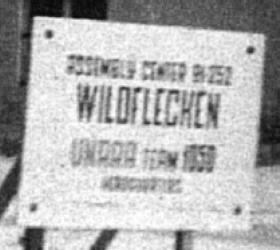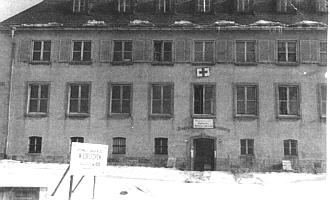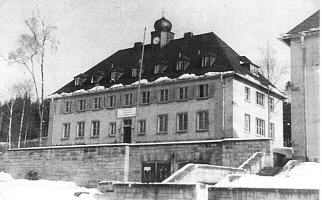|
 UNRRA UNRRA
(United Nations Relief Rehabilitation Administration)
Deutsche
Version...
44 governments
founded this organization on 9 November 1943. Former POWs (Prisoners
of War), refugees and DPs (Displaced Persons) were given a place to
stay, food, clothes, the possibility to work, to advance their education
and skills and in some cases to find employment. The camp accommodated
POWs, foreign workers and DP´s from Eastern Europe.
Tasks
of the UNRRA:
- Collecting
and publishing information about the numbers, place of domicile, state
of health and quality of life of DPs and refugees.
- Providing
measures of legal protection, health and any kind of support
- Establishment
of DP-camps in respective countries of DP´s and refugees which refer
to number 1 and 2
- Provide
accommondation, work and medical care for DP´s and refugees during
time before and after repatriation
- Enforcement
of transportation from DPs and refugees to their native country
- Supporting
reincorporation to their native country
- Establishing
a search organization with administrative offices to facilitate the
search for displaced persons and to execute death certificates if
necessary.
 In
October 1945, UNRRA took over camp Wildflecken. Within the camp five
buildings were furnished as hospitals to fight disease. 15000 camp inhabitants
were supplied with food. Medical care was secured by a unit of the former
German Armed Forces (Wehrmacht). The unit had been captured by US Forces
in 1945. 12 doctors and 50 nurses did their best to bring diseases like
tuberculosis, heart conditions and deficiency disease under control. In
October 1945, UNRRA took over camp Wildflecken. Within the camp five
buildings were furnished as hospitals to fight disease. 15000 camp inhabitants
were supplied with food. Medical care was secured by a unit of the former
German Armed Forces (Wehrmacht). The unit had been captured by US Forces
in 1945. 12 doctors and 50 nurses did their best to bring diseases like
tuberculosis, heart conditions and deficiency disease under control.
 The
largest group within the camp were Polish people from the Ukraine, whose
native country had meanwhile been occupied by soviet troops. The number
rose to over 17000 by the year 1947. They could not and would not return
to their home country. The
largest group within the camp were Polish people from the Ukraine, whose
native country had meanwhile been occupied by soviet troops. The number
rose to over 17000 by the year 1947. They could not and would not return
to their home country.
Based upon
various difficulties, UNRRA was not able to clear the camp until 1947.
Mainly the polish people declined their repatriation for above mentioned
reasons and remained in camp Wildflecken. For this reason
IRO took over the camp in July 1947. |
|
 UNRRA
UNRRA
 In
October 1945, UNRRA took over camp Wildflecken. Within the camp five
buildings were furnished as hospitals to fight disease. 15000 camp inhabitants
were supplied with food. Medical care was secured by a unit of the former
German Armed Forces (Wehrmacht). The unit had been captured by US Forces
in 1945. 12 doctors and 50 nurses did their best to bring diseases like
tuberculosis, heart conditions and deficiency disease under control.
In
October 1945, UNRRA took over camp Wildflecken. Within the camp five
buildings were furnished as hospitals to fight disease. 15000 camp inhabitants
were supplied with food. Medical care was secured by a unit of the former
German Armed Forces (Wehrmacht). The unit had been captured by US Forces
in 1945. 12 doctors and 50 nurses did their best to bring diseases like
tuberculosis, heart conditions and deficiency disease under control.
 The
largest group within the camp were Polish people from the Ukraine, whose
native country had meanwhile been occupied by soviet troops. The number
rose to over 17000 by the year 1947. They could not and would not return
to their home country.
The
largest group within the camp were Polish people from the Ukraine, whose
native country had meanwhile been occupied by soviet troops. The number
rose to over 17000 by the year 1947. They could not and would not return
to their home country.